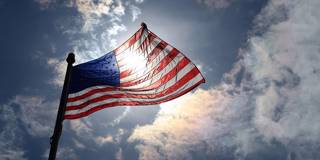Americans have long seen their country as morally exceptional, but their exceptionalism actually comprises three distinct views. Whichever prevails in next year’s presidential election will have significant implications for ongoing conflicts in Europe, Asia, and the Middle East.
CAMBRIDGE – As the 2024 presidential election approaches, three broad camps are visible in America’s debate over how the United States should relate to the rest of the world: the liberal internationalists who have dominated since World War II; the retrenchers who want to pull back from some alliances and institutions; and the America Firsters who take a narrow, sometimes isolationist, view of America’s role in the world.

CAMBRIDGE – As the 2024 presidential election approaches, three broad camps are visible in America’s debate over how the United States should relate to the rest of the world: the liberal internationalists who have dominated since World War II; the retrenchers who want to pull back from some alliances and institutions; and the America Firsters who take a narrow, sometimes isolationist, view of America’s role in the world.